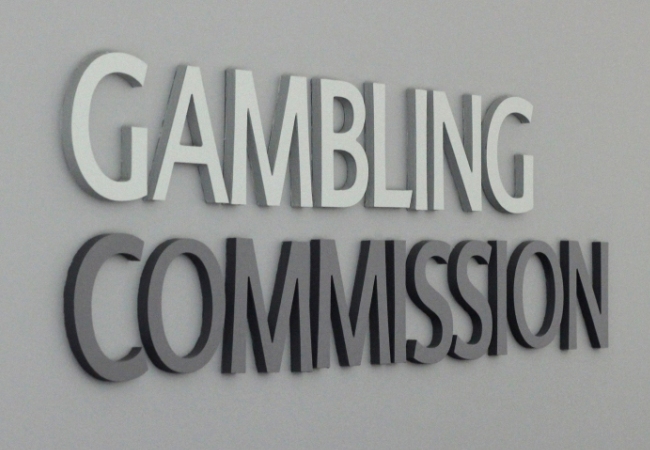A report from the House of Lords has called for “urgent action” to address the harms caused by gambling.
A report from the UK’s House of Lords has outlined a series of proposals to strengthen gambling regulation across Great Britain, including a ban on gambling sports sponsorship.
This comes after the House of Commons Public Accounts Committee and the All Party Parliamentary Group for gambling (APPG) both published reports looking at the UK’s gambling industry last month.
The Lords report, titled Gambling Harm – Time for Action, said that most gamblers can gamble safely. However, the report highlighted that the industry has had a significant negative impact on those that suffer from gambling-related harms, which is estimated to be between 250,000 and 460,000 people.
The report also highlighted that the industry makes an important contribution to employment and the country’s economy.
Upon publishing the report, Committee Chair Lord Grade of Yarmouth said: “Urgent action by the Government is required. Lax regulation of the gambling industry must be replaced by a more robust and focused regime which prioritises the welfare of gamblers ahead of industry profits.
“Addiction is a health problem which should be treated by the NHS and paid for by gambling industry profits. The Government must impose a mandatory levy on the industry. The more harmful a gambling product is, the higher the levy the operator should pay.”
The report has taken over a year to complete and makes 66 recommendations that could have far-reaching implications for the industry.
Recommendations
The recommendations outlined in the report cover several aspects of the gambling industry including betting, gaming, marketing, lottery, problem gambling, and the industry’s regulator.
One of the most notable recommendations called for a new testing system, which would assess all new games against a set of harm indicators such as their level of addictiveness and the potential they could appeal to children. A game that scores too high on the harm indicators could then be blocked from releasing.
The report also touches problem gambling treatment and recommends a mandatory levy for operators, similar to what is in place in New Zealand, the ensure problem gambling treatment is adequately funded. The levy could rise depending on the level of risk that comes with each gambling product.
This would then allow profits to be directed towards the NHS to extend its problem gambling treatment. The report also noted that the NHS promised to open 15 new clinics, and urged this to be completed by 2023, before planning further expansion.
According to the report, this mandatory levy should also be put towards providing funds for UK Research and Innovation (UKRI) and the Economic and Social Research Council (ESRC) to conduct gambling-related research. The Lords committee also said that using these bodies would be more efficient than an additional research body.
Unlike the APPG’s report from last month, the Lords report did not call for regulatory parity across all gambling channels. However, it did call for the “equalisation of speed of play and spin,” meaning no online game could be played quicker than a physical one in a gambling establishment.
The report also said this should be accompanied with regular reviews of stakes and prizes. In addition to this, the proportion of the stake kept by the house should be displayed clearly in gambling venues and on gambling sites.
Affordability checks
The report highlighted that affordability checks are “critical” to reduce gambling harm, and it should not be left to operators. Instead, the report suggests that the Gambling Commission should set out minimum steps for operators to take when considering a customer’s affordability.
According to the report, sharing affordability data between operators would ensure the checks are effective. While considering the General Data Protection Regulation, the Lords committee advised the Gambling Commission and the Department of Culture Media and Sport (DCMS) to agree on a procedure with the Information Commissioner’s office to accommodate this.
Regulatory oversight
The report said that oversight of the gambling sector needs to be strengthened. Although it suggested that the Gambling Commission only began using its powers to update the Licensing Conditions and Codes of Practice (LCCP) after facing criticism, but still welcomed it doing so.
However, the report highlighted that this wasn’t entirely the regulator’s fault and flagged examples of DCMS ministers failing to act on advice from the Commission. It also suggested that the regulator should use its regulatory powers more effectively by tailoring fines and penalties that reflect the size of the operator and seriousness of the offence.
According to the report, the Commission should “demonstrate much greater willingness to exercise its power to withdraw an operator’s licence,” for repeat offenders.
Advertising and marketing
Looking at advertising, the report concluded that gambling operators should no longer be allowed to promote their brands on the shirts of sports teams, and for no gambling advertising in or near a sports venue.
However, instead of implementing this immediately, it suggested the restrictions should not come into effect for clubs bellow the Premier League before 2023. Exceptions should also be made for horse and greyhound racing.
Another key difference between this report and the APPG report is that the Lords report did not call for a blanket ban on gambling advertising. Instead, it suggested that inducements to gamble should be banned and this should be overseen by the Commission and Advertising Standards Authority.
The report also suggests that affiliate marketing companies should be subject to regulatory controls and licensed by the Gambling Commission.
Other measures
Some more notable recommendations from the Lords report include:
- The creation of a statutory independent Gambling Ombudsman Service
- Ban on ‘bet to view’ streaming contracts
- More supervision from the regulator on ‘single manning’ in LBOs
- Online games to be categorized like ones in land-based venues with stake restrictions
- The minimum age for National Lottery and any online gambling should be raised to 18
- Lottery duty should be replaced by gross profits tax
- The commission should look annually at lotteries advertising and admin costs
- Gambling Commission should be performance reviewed every three years
- Gambling Commission needs to look into a new funding structure
- Reinstatement of British Gambling Prevalence Survey
- Banks should help develop an industry-wide protocol for blocking gambling transactions
- No bonus pay linked to player activity for those in personal contact
- Operators to make player ‘data sets’ available to researchers







